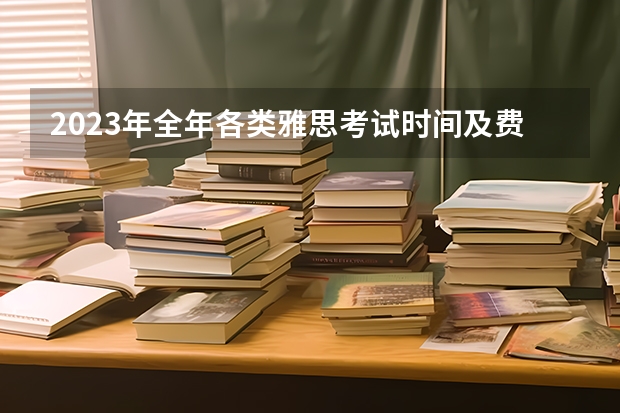雅思机考下午考试的口语什么时间考
2024-01-14 05:06:44 | 蜕变培训网
本文目录一览:

雅思机考口语是机考还是真人
雅思机考口语是真人,考生通过机考模式参加听力、阅读及写作三个部分的考试,并通过“人人对话”形式参加口语考试。因此雅思机考口语部分和纸笔模式的口语没有差别,依旧采用真人一对一的面试形式。
雅思机考模式保留了雅思考试一贯的安全性、有效性和严谨性,在考试内容、评分标准、难度等级、考试题型、考试安全设置等方面均与现行的纸笔模式完全一致。
雅思机考的优势
1、日期和场次更灵活,抢考位再也不是事。目前的雅思纸笔考试多数安排在周六和周四,而机考模式考试日期和考试场次安排更具灵活性,考试日期安排为一周多次,报考更easy。
2、报名时间更充裕,提前plan更容易。报名雅思考试纸笔模式,需要提前17-19天。然而经常有些考生们因为健忘,又或者是刚刚上场的新考生不懂规则,错过了报名日期。而机考在考试日期前7天截止报名,报名时间增加了一倍。
3、口语日期安排更加紧凑,缩短你的焦虑期。雅思机考依然保留了“人人对话”的口语考试形式,且口语考试通常会安排在机考当天或者与机考日期尽可能相邻的日期,考生们可以自行选择日期,速战速决。 蜕变培训网

雅思机考下午考试的口语什么时间考
雅思机考下午考试的口语时间是下午1点。
雅思考试时间安排在周六和周日。一般是按照确认信上规定时间提前15到30分钟到达口试考场,等待身份确认,等待考试。
雅思口语考试一般是星期六下午1点口语考试就开始了。
一般口语考试是分上午阶段和下午阶段,上午是8:30-12:00。下午是13:00或14:00-16:30。
正常情况下,雅思口语考试时间一般安排在笔试当天下午或者次日全天某个时间,提前知道雅思考试时间有两种方式。
第一、考生可在雅思笔试考试的前2天登入雅思报名时的网站,在“我的状态”里可以查询到具体的口语考试时间和安排。
第二、还有一种方式就是在考笔试的时候,观察周围关于口语考试的告示板,那上面一般会有很详细的考试信息。
如果考生的基础不好的话,可以选择上午的十一点半和下午四点之后,假如考生说在这个时间段不能够让考生有特别明显的成绩提升,但是在这个时候考官也是不至于让你拿一个特别惨的成绩回去。
因为每个城市考试的时间会略有不同,上午的时间一般从8.30开始到12.00结束,但是考试人数多的话也会延后至12.40;而下午的开始时间有13.10开始,也有14.00开始的,一般到下午16.30结束。

雅思考官教你雅思口语PART1考试技巧
上海环球青藤为大家带来一份由雅思考官写的雅思口语part1考试技巧,各位考生可以根据雅思口语考官的建议来准备雅思口语考试。希望对大家雅思口语备考有所帮助。IELTS is set into three sections.Part 1 is generally something about you, where you are from, do you like something, what do you think of something etc.
So you can prepare before the test to answer some of these questions. Of course you can't prepare for all things, as the examiner may throw in a few curve balls (tricky). This exchange of questions is going to be about 5 minutes.
When asked a question, for example, “Where is your hometown?” you might answer“Shanghai” This is correct but hardly a worthy answer that will convince the examiner to expect a lot from you.
Give the place and then say something about it as this shows you can engage in a conversation and not just regurgitate (give) facts and names. Maybe say something about the city, location, size, the fact you might not know much about it because you left at a young age.
“I come from China's largest city Shanghai, on the coast; do you know the area of Minhang in Shanghai? That is the part of Shanghai I was born”
A bit more than just one word.
Chances are you will get a follow up question as this is a conversation and in conversations you garner (get) information from those you are talking too.
“Can you describe… to me” or “How has the city changed” or “What do you like/don't like… about…” or “What are the people like” or "Who lives in your neighbourhood" or"Where do you buy groceries"
Answer how you feel. This isn't a test on facts, if you lie all the way through then be prepared as lying or non-truths can come back to haunt you.
“I come from the state of Nanjing in Beijing, next to India” Completely wrong but no one is taking notes on that. You will get a follow up question about it so chances are you will have todig yourself out of that hole (talk your way out of a lie). The truth is often easier to talk about.
There is a good chance you will also be asked about school or work as that is one of the main questions asked to someone you don't know.
If you are in school then maybe something about enjoying school or not enjoying school or maybe something about a topic in school, why do you study that?
If you are working then questions about what your job might be, how long have you been there, do you like it, will you stay long?
Again you don't have to tell the truth, maybe just half truths in case you feel you shouldn't give out too much information.
“I am an International spy here to assassinate you”
If you feel uncomfortable about a question then, just as in a conversation, say so and give the reason in a polite way. Politeness goes a long way. The examiner will understand as they are nice people and will try to reword the question so it isn't so invasive (direct) but they will also be able to tell if you are saying that just to bypass a question you find difficult or just don't like.
Other questions are likely to be about basic everyday things. Something about your family, neighbours, workmates, perhaps the weather or something to do with food or shopping. These are everyday things, or what you might ask someone you just met. Every question will likely have a follow up related to them. They are direct questions about the topic.
So food questions may deal with local dishes or if you like sweet food or who should do the cooking and why?
Something about your family might be the size of the family, what someone in the family does, your role in the family etc.
Be clear and precise, don't go off topic too much and don't repeat, don't repeat what you want to say. Be yourself, take a deep breath before you speak and if you spend a second thinking about it before you start talking, then nod in acknowledgement to the question. A little dead air for a second or two is fine as that is natural in conversations. A second or two, not five or 10 seconds.
Here are some other topics to think about. You can probably answer questions on them in your native tongue so now practice using English only.
Family, Language, your routine, holidays and festivals, travel, sport, Foreigners in China, Entertainment like TV and reading, cultural areas like art and architecture.
There is something called the 5Ws of Who What Where When Why and How. Basic words used to gather information. Maybe 'Have' and 'Will' should be in there too.
Pick a topic and try making questions using the Ws along with how, have and will. This isn't how questions are chosen but it is good way to practice and to help you anticipate the next question.
Like Sun Tzu says, "If you know your enemies and know yourself, you will not be imperilled in a hundred battles... if you do not know your enemies nor yourself, you will be imperilled in every single battle." The questions are the battle not the examiner. 以上就是雅思机考下午考试的口语什么时间考全部内容了,了解更多相关信息,关注蜕变培训网。
-
 2023年全年各类雅思考试时间及费用一览 2023年雅思考试时间和费用介绍
2023年全年各类雅思考试时间及费用一览 2023年雅思考试时间和费用介绍2023-12-12 23:01:54
-
 长沙雅思考试2023报名时间 雅思2023年几月报名?
长沙雅思考试2023报名时间 雅思2023年几月报名?2023-12-19 12:29:11
-
 2023雅思考试时间安排表及报名时间表 2023年云南省雅思考试时间及考试地点已公布
2023雅思考试时间安排表及报名时间表 2023年云南省雅思考试时间及考试地点已公布2023-12-23 06:41:07
-
 雅思报名时间 雅思考试报名时间?
雅思报名时间 雅思考试报名时间?2023-12-14 16:37:34
-
 文科留学怎么申请英语考试 申请美国研究生留学需要通过的语言考试
文科留学怎么申请英语考试 申请美国研究生留学需要通过的语言考试2023-10-13 00:54:28
-
 请问2023年太原雅思报名日期 2023年雅思报名时间安排
请问2023年太原雅思报名日期 2023年雅思报名时间安排2023-12-16 23:04:36